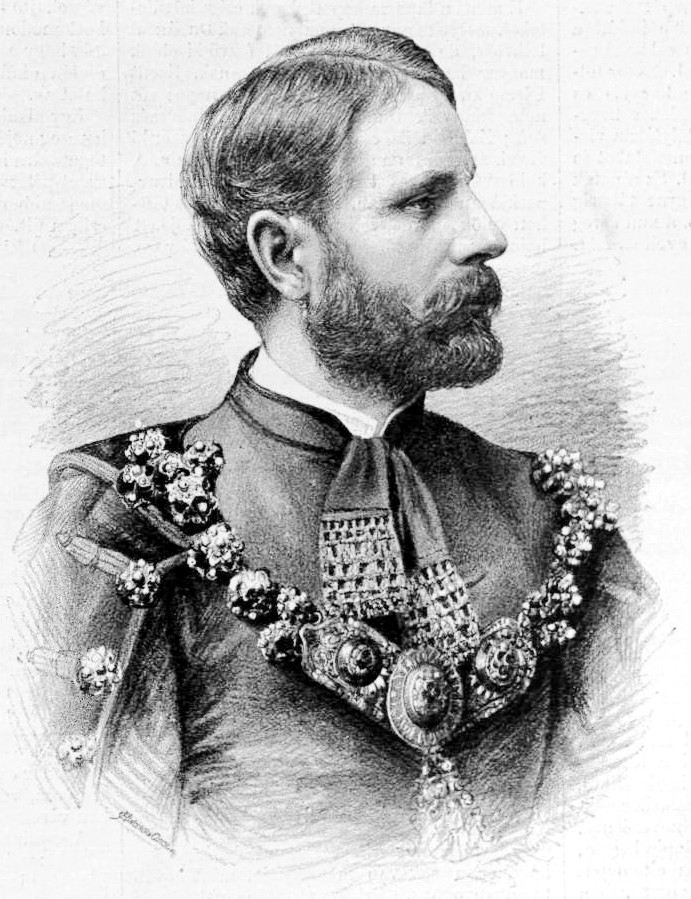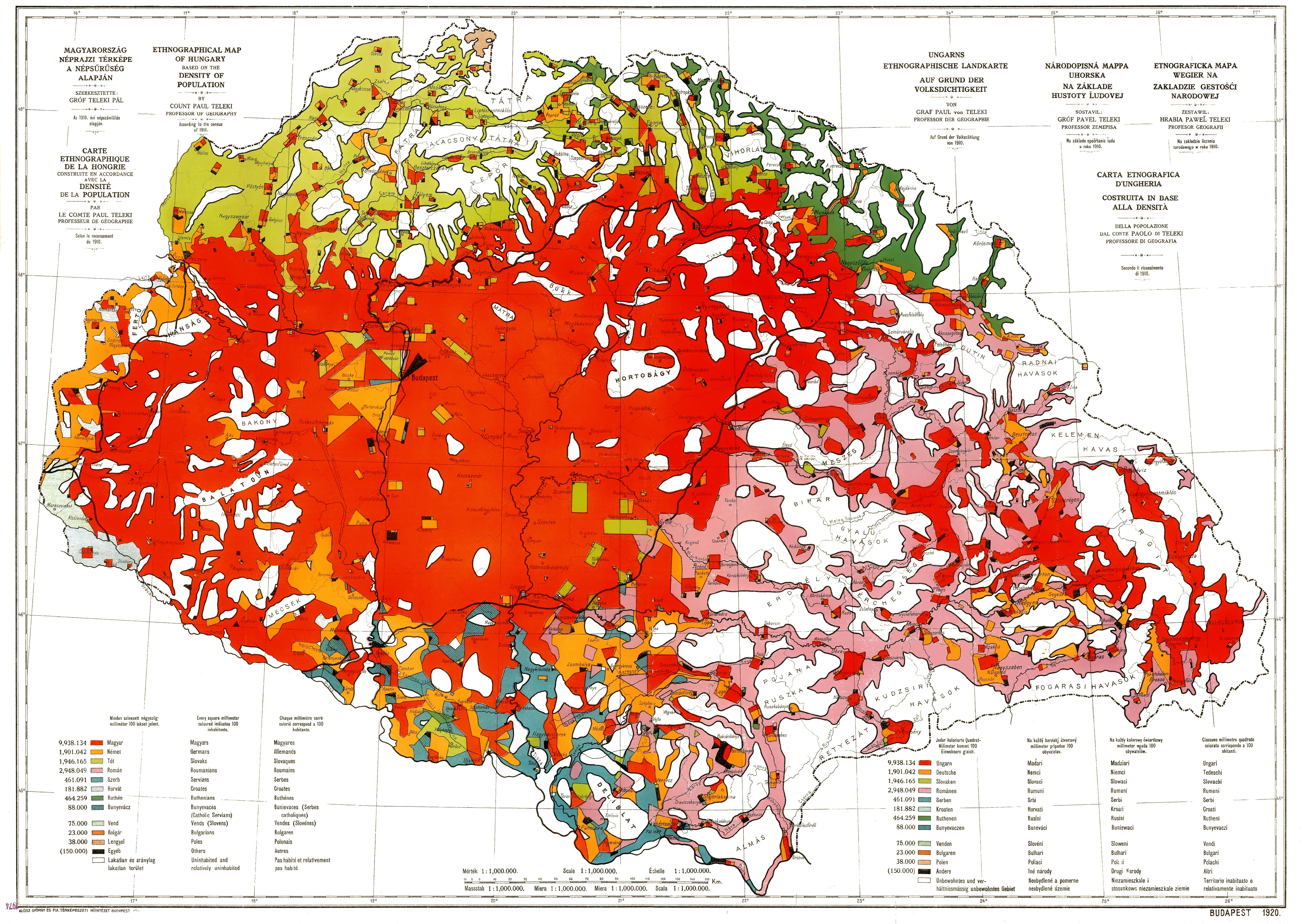|
Károly Khuen-Héderváry
Count Károly Khuen-Héderváry de Hédervár, born as ''Károly Khuen de Belás'' ( hr, Dragutin Khuen-Héderváry, 23 May 1849 – 16 February 1918) was a Hungarian politician and the Ban of the Kingdom of Croatia-Slavonia in the late nineteenth century. Khuen's reign was marked by a strong magyarization. After a series of riots broke out against him in 1903, Khuen was relieved of his duty and appointed prime minister of Hungary. Background Born in Bad Gräfenberg, Austrian Silesia, Károly Khuen de Belás was the oldest son of seven siblings born to Hungarian magnate Antal Khuen de Belás (1817–1886) and his wife, Baroness Angelika Izdenczi de Monostor et Komlós (1823–1894). * Alice (1850–1879), wife of Count Zsigmond Zichy de Zich et Vásonykeö, an Imperial and Royal Chamberlain, Lieutenant, they married 8 January 1877 * Antal (1852–1890), Imperial and Royal Chamberlain, member of the Sabor, prominent architect * Angelika (1855–1918), wife of Count Albert vo ... [...More Info...] [...Related Items...] OR: [Wikipedia] [Google] [Baidu] |
Count
Count (feminine: countess) is a historical title of nobility in certain European countries, varying in relative status, generally of middling rank in the hierarchy of nobility. Pine, L. G. ''Titles: How the King Became His Majesty''. New York: Barnes & Noble, 1992. p. 73. . The etymologically related English term " county" denoted the territories associated with the countship. Definition The word ''count'' came into English from the French ''comte'', itself from Latin '' comes''—in its accusative ''comitem''—meaning “companion”, and later “companion of the emperor, delegate of the emperor”. The adjective form of the word is " comital". The British and Irish equivalent is an earl (whose wife is a "countess", for lack of an English term). In the late Roman Empire, the Latin title '' comes'' denoted the high rank of various courtiers and provincial officials, either military or administrative: before Anthemius became emperor in the West in 467, he was a mil ... [...More Info...] [...Related Items...] OR: [Wikipedia] [Google] [Baidu] |
Magyarization
Magyarization ( , also ''Hungarization'', ''Hungarianization''; hu, magyarosítás), after "Magyar"—the Hungarian autonym—was an assimilation or acculturation process by which non-Hungarian nationals living in Austro-Hungarian Transleithania adopted the Hungarian national identity and language in the period between the Compromise of 1867 and Austria-Hungary's dissolution in 1918. Magyarization occurred both voluntarily and as a result of social pressure, and was mandated in certain respects by specific government policies. Before the World War I, only three European countries declared ethnic minority rights, and enacted minority-protecting laws: the first was Hungary (1849 and 1868), the second was Austria (1867), and the third was Belgium (1898). In contrast, the legal systems of other pre-WW1 era European countries did not allow the use of European minority languages in primary schools, in cultural institutions, in offices of public administration and at the legal cou ... [...More Info...] [...Related Items...] OR: [Wikipedia] [Google] [Baidu] |
Franz Joseph I
Franz Joseph I or Francis Joseph I (german: Franz Joseph Karl, hu, Ferenc József Károly, 18 August 1830 – 21 November 1916) was Emperor of Austria, King of Hungary, and the other states of the Habsburg monarchy from 2 December 1848 until his death on 21 November 1916. In the early part of his reign, his realms and territories were referred to as the Austrian Empire, but were reconstituted as the dual monarchy of the Austro-Hungarian Empire in 1867. From 1 May 1850 to 24 August 1866, Franz Joseph was also President of the German Confederation. In December 1848, Franz Joseph's uncle Emperor Ferdinand abdicated the throne at Olomouc, as part of Minister President Felix zu Schwarzenberg's plan to end the Revolutions of 1848 in Hungary. Franz Joseph then acceded to the throne. Largely considered to be a reactionary, he spent his early reign resisting constitutionalism in his domains. The Austrian Empire was forced to cede its influence over Tuscany and most of its claim to Lomba ... [...More Info...] [...Related Items...] OR: [Wikipedia] [Google] [Baidu] |
Croatian–Hungarian Settlement
The Croatian–Hungarian Settlement ( hr, Hrvatsko-ugarska nagodba, hu, magyar–horvát kiegyezés, german: Kroatisch-Ungarischer Ausgleich) was a pact signed in 1868 that governed Croatia's political status in the Hungarian-ruled part of Austria-Hungary. It lasted until the end of World War I, when the Croatian Parliament, as the representative of the historical sovereignty of Croatia, decided on October 29, 1918 to end all state and legal ties with the old Austria-Hungary. Background Before the Revolutions of 1848 in the Habsburg areas and the notable actions of Croatian Ban Josip Jelačić, the northern Croatian lands were divided into the Kingdom of Croatia and the Kingdom of Slavonia as separate Habsburg crown lands, recognized as Lands of the Crown of St. Stephen and under the jurisdiction of the Kingdom of Hungary but effectively functioned a single kingdom, subordinate to the central government in Vienna. After 1849, Slavonia and Croatia continued to function in the ... [...More Info...] [...Related Items...] OR: [Wikipedia] [Google] [Baidu] |
Vienna
en, Viennese , iso_code = AT-9 , registration_plate = W , postal_code_type = Postal code , postal_code = , timezone = CET , utc_offset = +1 , timezone_DST = CEST , utc_offset_DST = +2 , blank_name = Vehicle registration , blank_info = W , blank1_name = GDP , blank1_info = € 96.5 billion (2020) , blank2_name = GDP per capita , blank2_info = € 50,400 (2020) , blank_name_sec1 = HDI (2019) , blank_info_sec1 = 0.947 · 1st of 9 , blank3_name = Seats in the Federal Council , blank3_info = , blank_name_sec2 = GeoTLD , blank_info_sec2 = .wien , website = , footnotes = , image_blank_emblem = Wien logo.svg , blank_emblem_size = Vienna ( ; german: Wien ; ... [...More Info...] [...Related Items...] OR: [Wikipedia] [Google] [Baidu] |
Héder Viczay
Count Héder Viczay de Loós et Hédervár (2 August 1807 – 23 December 1873) was a Hungarian traveler, amateur archaeologist, collector, Imperial and Royal Privy Councillor. He was the last member of the old noble Viczay family. Background His parents were Count Ferenc Viczay, an Imperial and Royal Chamberlain and Countess Amália Zichy de Zich et Vásonkeő. He had three siblings: * Károly (1802–1867): Imperial and Royal Privy Councillor, he married Mária Khuen, aunt of later Prime Minister Károly Khuen-Héderváry, in 1829. * Adolf (1804–1873): uhlan captain, his wife was Leokádia Anasztázia Lichnovszky since 1837. * Antónia (1812–1903): Her first husband was Count Pál Esterházy (1806–1857), the second was Adolf Mengen, an Imperial and Royal Major General. External links * Nagy Iván: Magyarország családai * Magyar Nemzetségi Zsebkönyv * ''Vasárnapi Újság'', 1874. 2. szám Részletes életrajza* Viczay Heder lanya, Mari, a Mezriczky Paulaval valo visz ... [...More Info...] [...Related Items...] OR: [Wikipedia] [Google] [Baidu] |
Eltz
The House of Eltz was a noted German noble family of the ''Uradel (, German: "ancient nobility"; adjective or ) is a genealogical term introduced in late 18th-century Germany to distinguish those families whose noble rank can be traced to the 14th century or earlier. The word stands opposed to '' Briefadel'', ...''. The Rhineland, Rhenish dynasty has had close ties to the Kingdom of Croatia-Slavonia since 1736. History Though older sources mentioned one Eberhard zu Eltz, a Francia, Frankish citizen of Trier in the late 7th century, the otherwise first recorded instance of the name occurred in 1157, when Rudolph zu Eltz was mentioned as witness to the donation of a property deed by Emperor Frederick I, Holy Roman Emperor, Fredrick Barbarossa. At that time, Eltz lived in a small manor on the banks of the Elzbach, River Elz, a tributary of the Moselle (river), Moselle, in what is now the German state of Rhineland-Palatinate. The family members had been Ministerialis, ministerial ... [...More Info...] [...Related Items...] OR: [Wikipedia] [Google] [Baidu] |
Sabor
The Croatian Parliament ( hr, Hrvatski sabor) or the Sabor is the unicameral legislature of the Republic of Croatia. Under the terms of the Croatian Constitution, the Sabor represents the people and is vested with legislative power. The Sabor is composed of 151 members elected to a four-year term on the basis of direct, universal and equal suffrage by secret ballot. Seats are allocated according to the Croatian Parliament electoral districts: 140 members of the parliament are elected in multi-seat constituencies. An additional three seats are reserved for the diaspora and Croats in Bosnia and Herzegovina, while national minorities have eight places reserved in parliament. The Sabor is presided over by a Speaker, who is assisted by at least one deputy speaker (usually four or five deputies). The Sabor's powers are defined by the Constitution and they include: defining economic, legal and political relations in Croatia, preservation and use of its heritage and entering int ... [...More Info...] [...Related Items...] OR: [Wikipedia] [Google] [Baidu] |
Zichy Family
The House of Zichy (of Zich and Vásonykő) is the name of a Magyar family of the Hungarian nobility, conspicuous in Hungarian history from the latter part of the 13th century onwards. Brief history of the Zichy The first authentic ancestor of the Zichy bore the name of Gal (Gál) Zayk, and Zayk was the surname of the family until it came into possession of Zich in the 14th century. They first came into great prominence in the 17th century, being given countly rank in 1679 in the person of the imperial general Stefan Zichy (d. 1693). His descendants divided, first into two branches: those of Zichy-Palota and Zichy-Karlburg. The Palota line, divided again into three: that of Nagy-Lang, that of Adony and Szent-Miklos, and that of Palota, which died out in the male line in 1874. The line of Zichy-Karlburg (since 1811 Zichy-Ferraris) split into four branches: that of Vedrod, that of Vezsony, and those of Daruvar and Csics, now extinct. Prominent Members of Zichy ancestry * Count Kár ... [...More Info...] [...Related Items...] OR: [Wikipedia] [Google] [Baidu] |




.png)


